The lost boy of Verona - A postcard from the 1999 Worlds
Former journalist Philippe Maertens remembers VDB's lonely existence
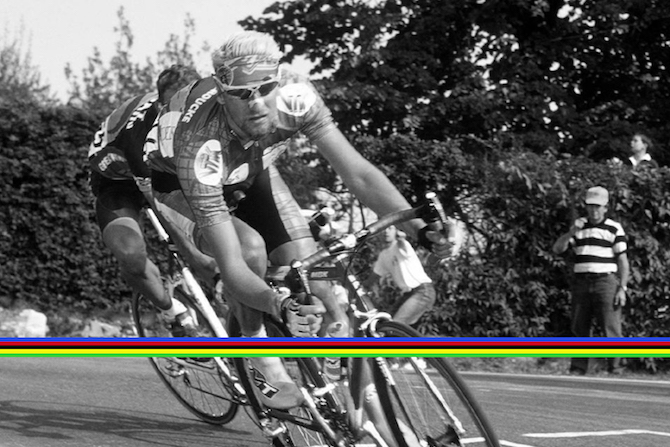
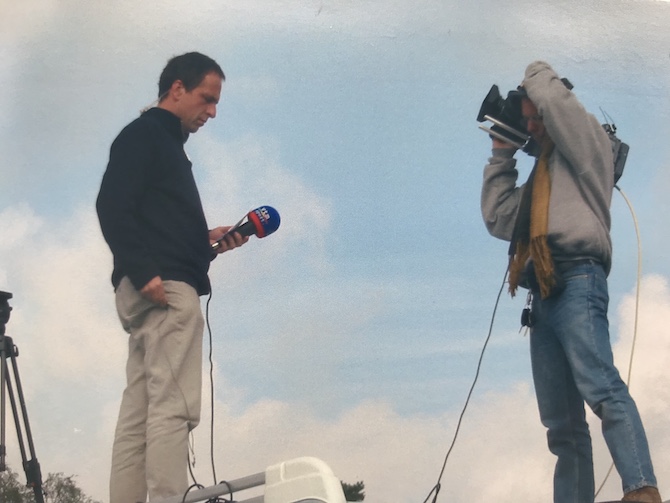
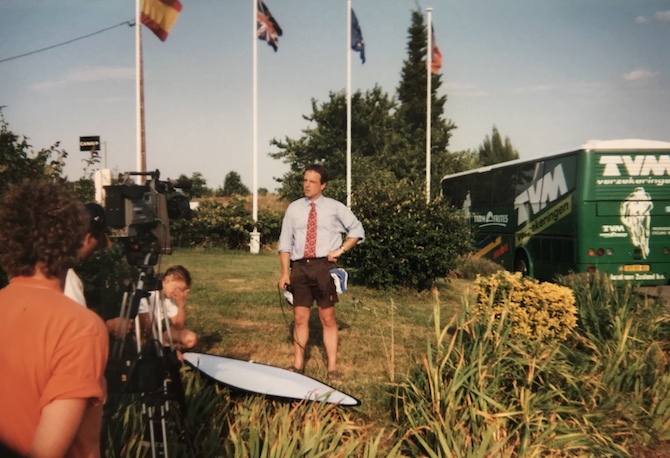
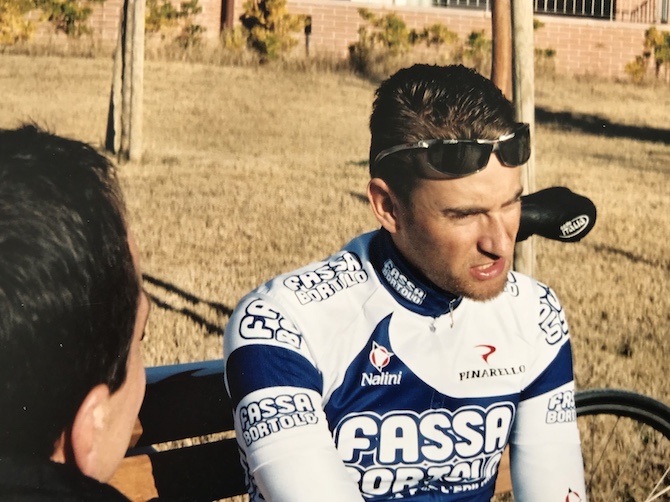
VDB is God.
There was a time, many years ago, when those three words were written on the signs and on the roads at every race you went to: VDB is God.
At the time, as a television journalist covering cycling, it was hard to detach yourself from the human hurricane that was Frank Vandenbroucke. In Flanders, cycling is the pulse of the people. It's bred into the consciousness, and, for the Belgians, Frank was an almost omnipotent being, blessed with talents no others had, and yet fragile enough to fall for at the same time.
I have many memories of Frank: how he rose through the ranks as a talented child, wowed us all with that union of grace and power, and how, no matter what you predicted, Frank would always surprise you. He was like that, even when the shock of his death was announced in late 2009. At that point, we all thought he'd turned a corner, kicked the drugs and got his life back on track. Instead, Frank had one last surprise for us.
In 1999, I was at the Worlds in Verona for VTM, a Belgian television network that covered cycling on a massive scale. The Belgian cycling team that year was a Galacticos-packed squad with former world champion Johan Museeuw the road captain and Frank the real leader on the road.
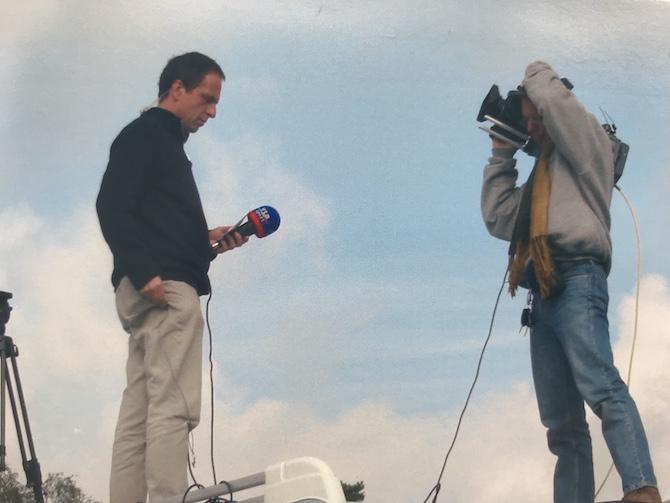
That year, Frank was in the form of his life. He had come to Verona on the back of two stage wins at the Vuelta a España, and he looked phenomenal. Even now, when it comes to Liège-Bastogne-Liège, the Belgian press roll out the images of Frank winning that year's race.
There are the photos of him crossing the line, but also the moment when he rode away from Michele Bartoli on the Côte de la Redoute as if the Italian was standing still and how, as I recall, two days before the race he told us – he told the world – where and when he would attack and win the race on the Côte de Saint-Nicolas. No rider had done that before, and none have done it since, but that was Frank. When God speaks, you listen.
Get The Leadout Newsletter
The latest race content, interviews, features, reviews and expert buying guides, direct to your inbox!
At the Worlds there was a high level of expectation on Frank. I recall how he crashed in the opening few laps and we winced as we saw him get back on the bike and begin to gingerly return to the peloton. We exhaled in relief when we saw him come back, but we had no idea at the time that he had broken his wrists. He said nothing to his teammates of the injury or the pain that was coursing through him, but as the race wore on, it was clear that something wasn't 100 per cent.
When the group of favourites that contained Oscar Freire, Jan Ullrich, Francesco Casagrande and Dimitri Konyshev went away, Frank was there, but he couldn't really get out of the saddle, and he could barely pull on the bars. When Ullrich accelerated, creating a gap for Frank to exploit, the attack was good, but not good enough.
We all know what happened next. Freire took a surprise win and Frank came over the line, teeth gritted, face a mask of pain, in seventh place. At the time it was a disappointment, and of course he was mobbed at the line by the press, all asking him what went wrong and why he didn't win.
VTM weren't rights holders so we were one of the last crews to interview him that day. He swung through the mixed zone, made eye contact with me, and slowly came over. As the interview wore on, I could tell he was in difficultly. Maybe the pain killers were wearing off, or maybe the adrenaline was slowly leaving his body, but at the end of our talk he asked if I could take him to hospital. Me, a television journalist? I almost did a double-take. He asked me again: "Philippe, can you take me to hospital?"
I'll be honest: this was far from ideal. I still had to file my work, and back then we only had a small window to do this before the network could use our material. But I looked at my cameraman, and we instantly knew we had to agree. Here was a young man in distress, in pain and, what's more, all alone. Everyone, and I mean everyone, from the Belgian federation had left the race and poor Frank had been abandoned.
So, we took him to the hospital, and we actually got a nice interview and some exclusive footage from the trip. I said my good-byes to Frank and left, but later that night I saw him again. I have to shake my head and I laugh now, but I remember walking down the steps at a nightclub event set up by former rider Eros Poli. I came through the smoke of the dancefloor, and who do I see first? Frank, dancing on a table with both wrists in casts and a drink in each hand. That was Frank. Nothing was ever grey with him; it was either black or white, hot or cold. Always extreme, and never average.
A few year later, while he was at Fassa Bortolo, he completely disappeared. His team, his colleagues, the press, they all had no idea where he was, but I had the idea that if I could find his former teammate, Massimiliano Lelli, then I could find Frank.
I went to my boss and said: "Look, give me a week, give me carte blanche, and I'll find you Frank Vandenbroucke." Of course, my boss agreed, and a day or so later my cameraman and I were on a flight to Italy.
We arrived at Lelli's house, but he was out, I think at a race. But his wife opened the door, and she was friendly enough, and told us that if we arrived at a certain spot in town the next morning, then we'd see Frank because he had been training with some local riders each day. The next day, just she predicted, I found Frank, and we ended up having a nice coffee together, and we did an interview for our show.
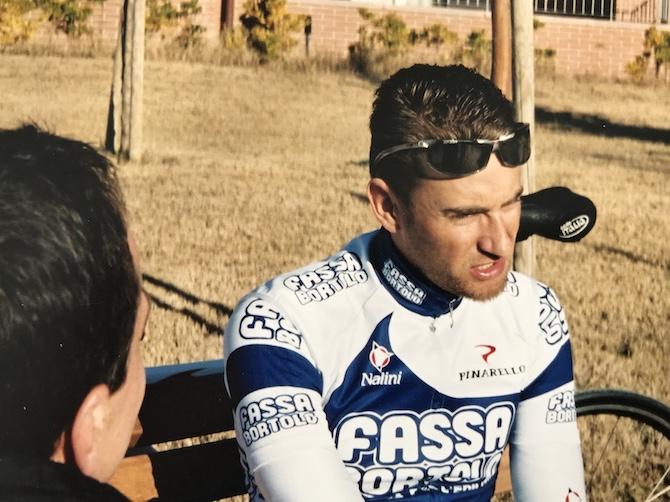
I guess the point of that story is that Frank was always followed, always needed, always in demand. He loved part of that, no doubt, but it also contributed to his eventual downfall.
During the last few years of his career, Frank bounced around from team to team. Every time I saw him, he was wearing a different jersey. He was like a boy, looking for a home – a place where he could find something, and fill something that was missing inside. But he never seemed to find it.
There were so many comebacks, so many false starts, but behind the sunglasses and confidence he was already falling apart. We all know the stories about the sleeping pills, the doping and the addictions, but it got to a point in his career when Frank was in a vicious circle, and in the end that's what brought him down – this constant need to have pills to wake up, pills to fall asleep. You can have as much talent as you want, but in the end he destroyed himself.
When I think about Frank, I look back to Verona: how he sat in the window seat of the car on the way to hospital, a vacant look in his eyes as he stared down, studying his injured wrists, almost wondering how his body could have failed him. I remember how I'd break the awkward silence and he would for a second not be there with us, but away with his thoughts before snapping back and giving us a funny answer and a smile.
He was a bike rider with a supreme skill but a supreme vulnerability. Talented rider, strays into doping, finds himself alone and lonely. Dead. It's a story we've sadly had to hear on more than one occasion.
Frank wasn't God, but he will at least be immortalised in the images we see when we look back at Liège-Bastogne-Liège, and in my mind he'll be watching on, dancing on a table with a drink in each hand when the Worlds come around again.
Salute, Frank.
Philippe Maertens worked at VTM – Belgian commercial TV – for 17 years until 2007. He then 'changed camp' and worked for cycling teams as a press officer (Astana, RadioShack, and now Katusha). In Belgium, he still commentates on cyclo-cross for PlaySports TV, starting on September 23 with the World Cup Waterloo.
This story was edited by Daniel Benson.